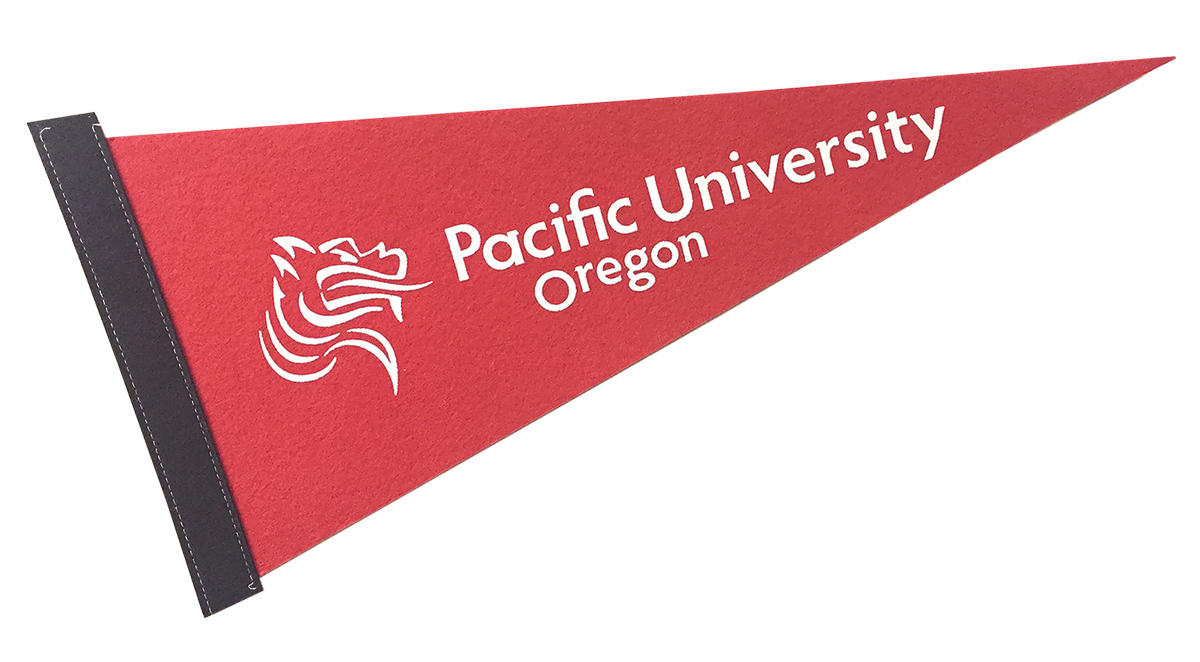Dollars & Sense

Sometimes smart people do dumb things, especially when it comes to money. Just ask Kathleen (O’Malley) Celmins ’04.
Shortly after she graduated from Pacific University with a bachelor’s in politics and government, Celmins moved to Washington D.C. to pursue a career in politics.

It was during those lean, post-college days that she made a self-described dumb financial move that would eventually send her career in a different direction.
Although she was living on a shoestring at the time, Celmins wrote a $20,000 check linked to a credit card to invest in a business venture that, as the saying goes, sounded too good to be true.
“It sounds like I got suckered,” said Celmins, reflecting on her decision to use credit to invest in a “revolutionary” rat poison business that promised hefty returns and never delivered.
By time she turned 30, Celmins had moved back to the Pacific Northwest, where she grew up, and was more than $20,000 in credit card debt. Her 30th birthday was a wake-up call.
“I thought to myself, ‘Only stupid people are this far in [credit card] debt,’” said Celmins, who vowed then and there to do something about her predicament.
She tightened her belt and began chipping away at the debt — in “the same way you eat an elephant, one bite at a time,” Celmins explained.
To earn some extra money, she also started a blog, FrugalPortland.com, that chronicled her efforts to get out of debt and, luckily for her, brought
in advertising revenue.
“I started blogging my way out of debt in 2011,” Celmins said.
By the spring of 2013, Celmins was not only free of credit card debt, but had become part of a community of personal finance bloggers.
“I found a community of people on the internet who understood” my situation, and some had made financial mistakes too, Celmins said.
"I told myself that my past self had made mistakes, but that my current self could make up for it, and mu future self would be happy with what I was doing."
– Kathleen Celmins '04
Through that community, Celmins met Joe Saul-Sehy, a witty former financial advisor who co-hosted a personal-finance podcast called Stacking Benjamins. The two became friends and eventually business partners as well.
Today, they run Stacking Benjamins LLC, a collection of web properties that includes the award-winning podcast by the same name and its affiliated website. The firm’s web properties also include FrugalPortland.com, which today focuses on inexpensive things to see and do in Portland.
The Stacking Benjamins podcast takes a playful approach to money matters but has a serious mission: promoting financial literacy. Saul-Sehy’s co-host is a certified financial planner known on the show as the “Other Guy,” or OG.
Broadcast “live from Joe’s mom’s half-finished basement,” the podcast follows a variety-show format, treating listeners to “a parade of financial headlines, personal finance experts, creatives” and inspirational tales. Guests often share their own money mishaps “to show that even the pros get it wrong sometimes.”
“We try to make it fun; our goal is to be the first word you hear in personal finance, not the last,” Celmins said. “We joke that if you’ve learned something from our show, then we are doing something wrong.”
The show’s unusual approach has set it apart in a crowded field. In 2016, it made Kiplinger’s annual personal-finance best list. Last year, Entrepreneur magazine included the show in its list of “podcasts that will make you richer.”

As a managing partner, Celmins’ responsibilities include developing courses and premium content for the Stacking Benjamins website. The online courses cover such topics as “How to Save Half Your Income” and “How to (Legally) Cheat on Your Taxes.”
Got your attention? That’s the point, said Celmins, adding that a course titled “How to Read a 1040” tax form isn’t likely to generate much interest.
What are the biggest obstacles most people face when it comes to getting their financial houses in order?
For college-educated professionals, it often boils down to mindset, Celmins said. Many professionals, she explained, make poor financial choices in order to keep up with the proverbial Joneses.
“The difference between where you think you should be [in life] and reality can be such a huge delta,” Celmins said. “It’s easy to lease a car you shouldn’t be leasing or get into debt” hoping to fake it until you make it.
Celmins is living proof that psychology plays a big role in how people approach money matters. She says she once felt like “a loser” for having credit card debt. But, by changing her internal dialog, she became empowered to do something about it.
“Instead of continuing to beat myself up about things I had done, I created a different persona,” she said.
“I told myself that my past self had made mistakes, but that my current self could make up for it, and my future self would be happy with what I was doing,” Celmins explained.
When all is said and done, Celmins’ post-college financial blunder might turn out to be one of the best mistakes she ever made. “I really love online business,” she said.
“I love being my own boss too. Not that I don’t play well with others, but there is so much more potential when I can create my own work.” ■
This story first appeared in the Winter 2017 issue of Pacific Magazine. For more stories, visit pacificu.edu/magazine.


